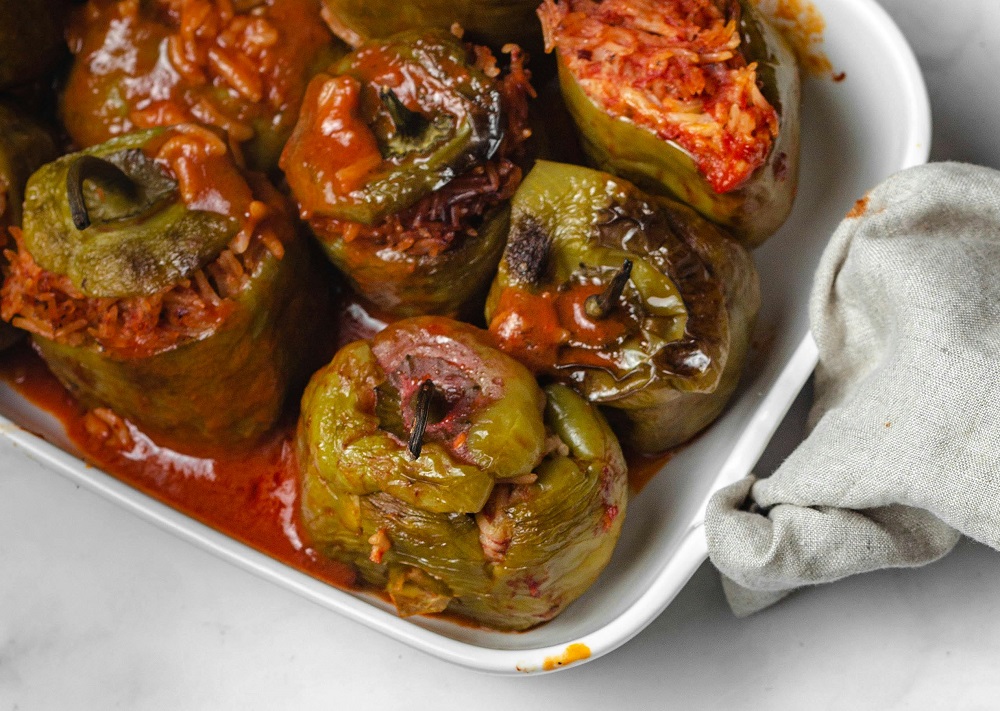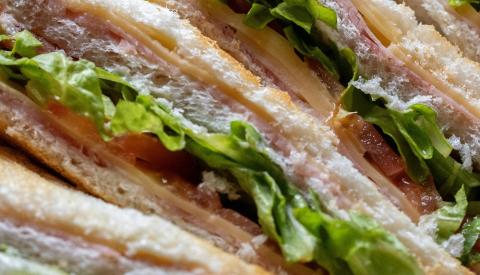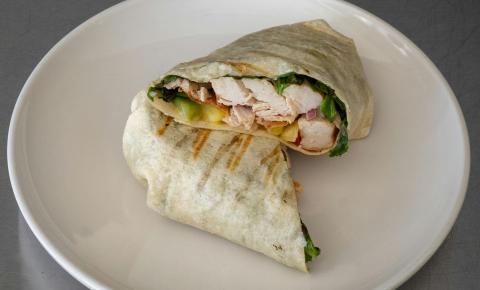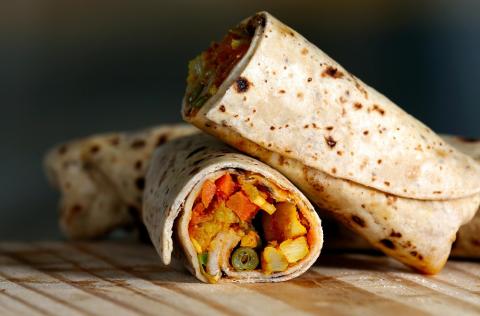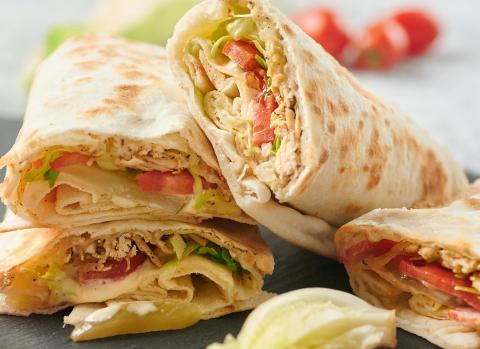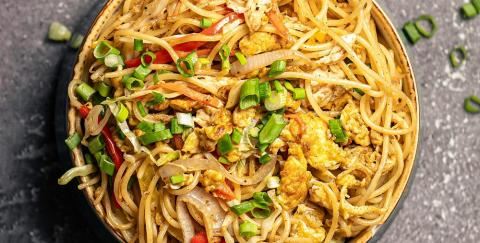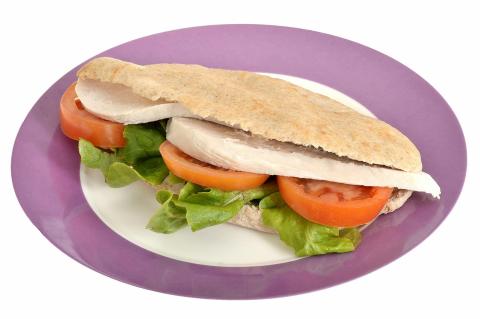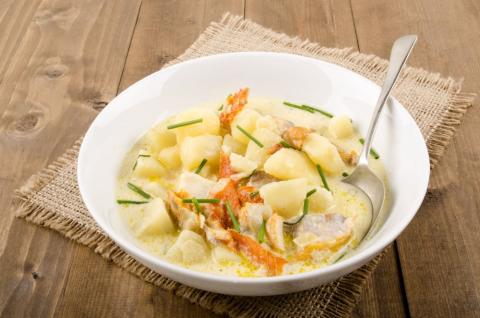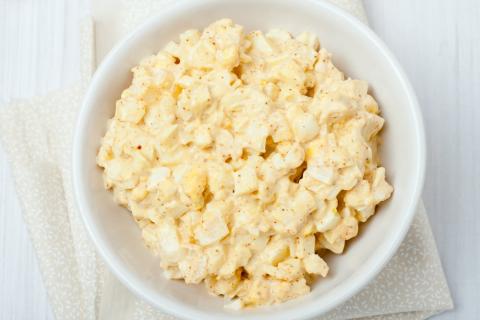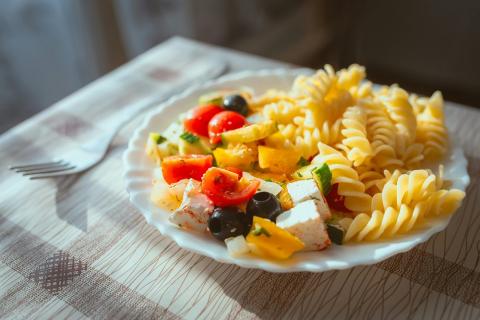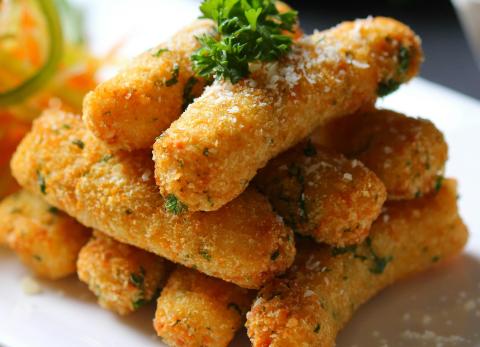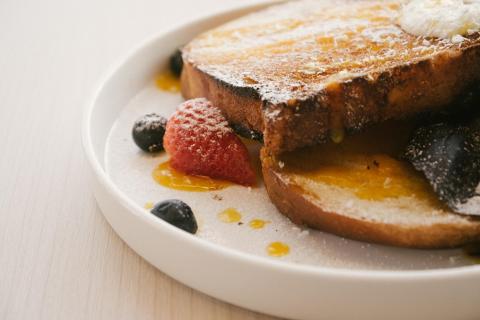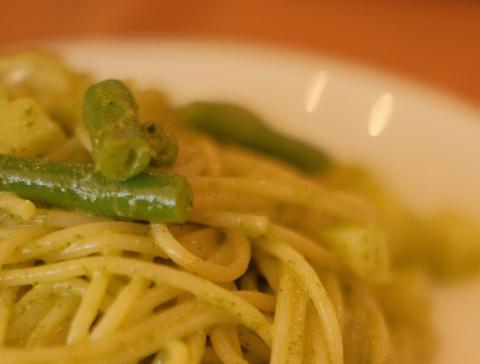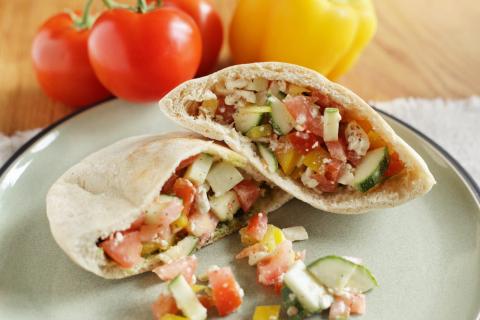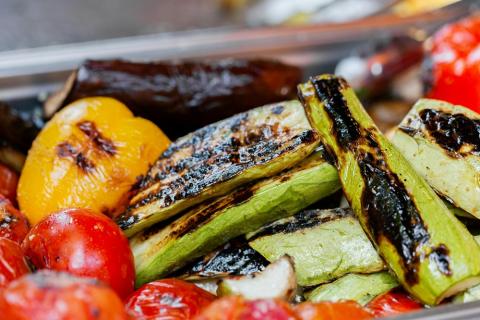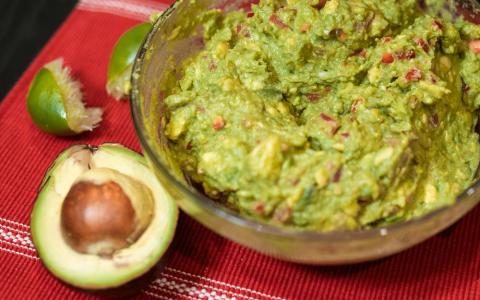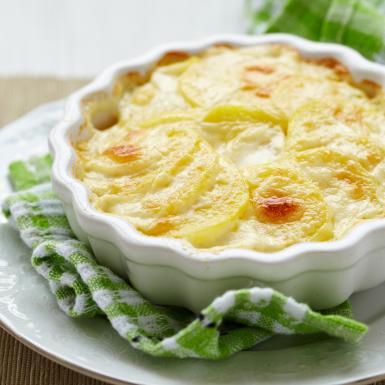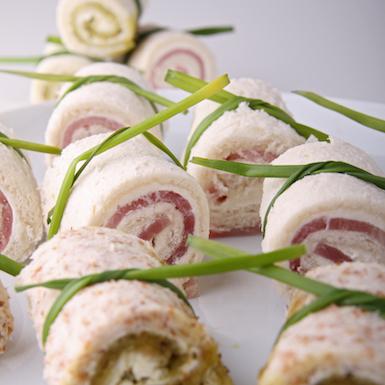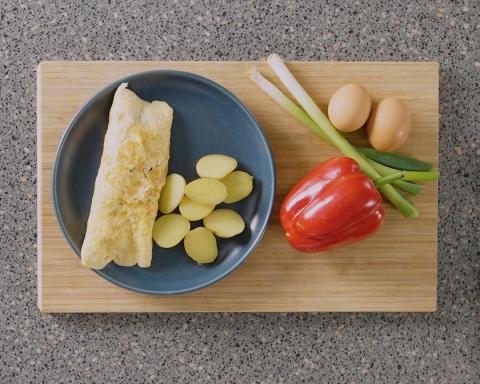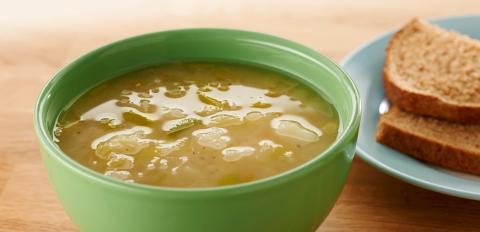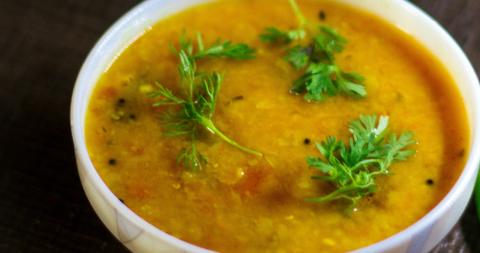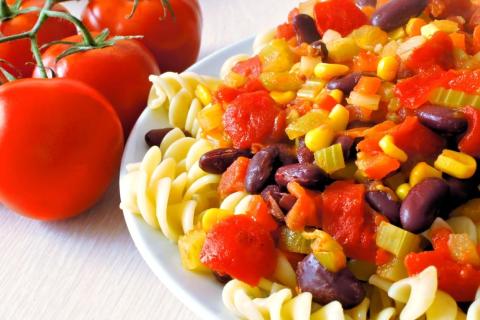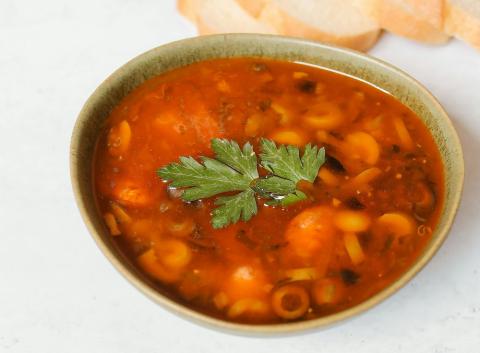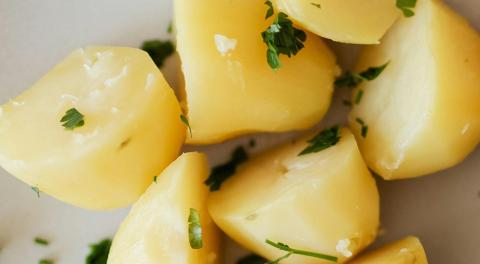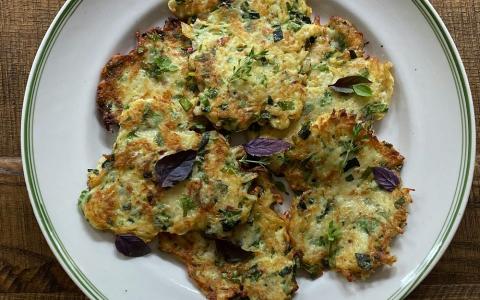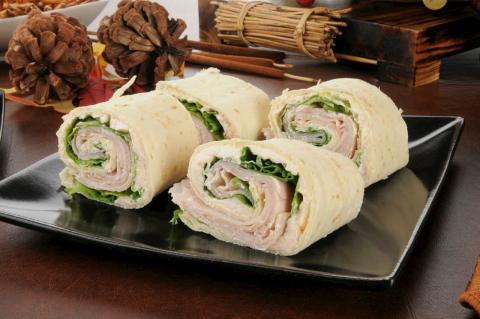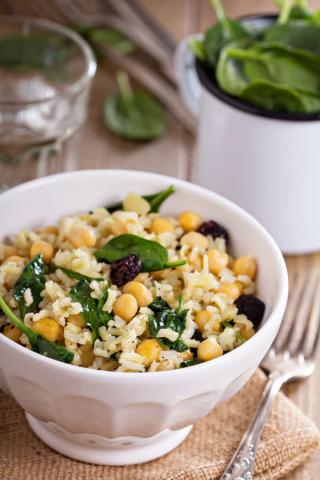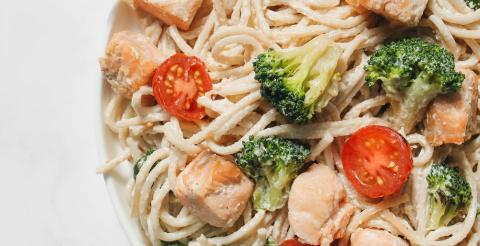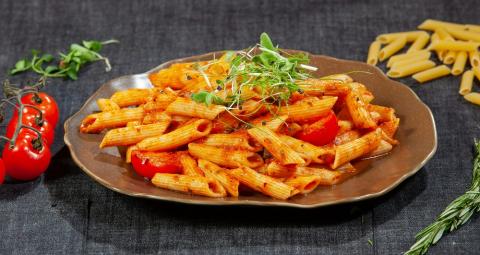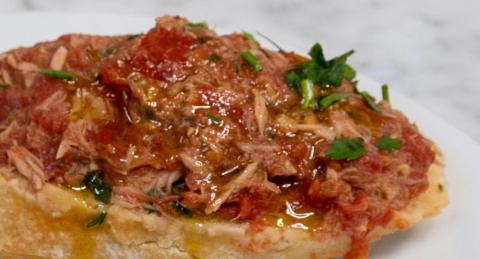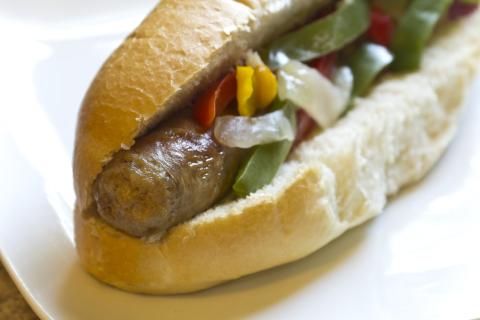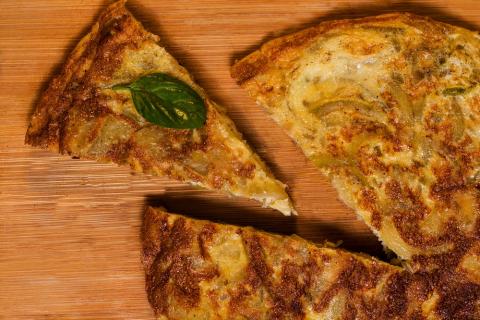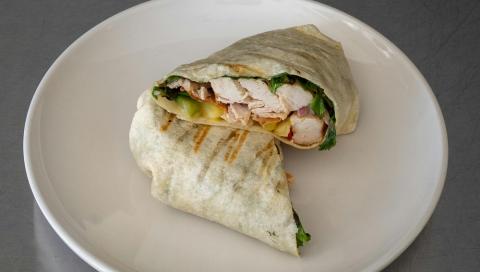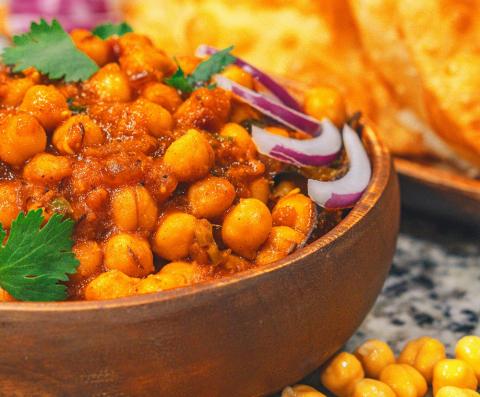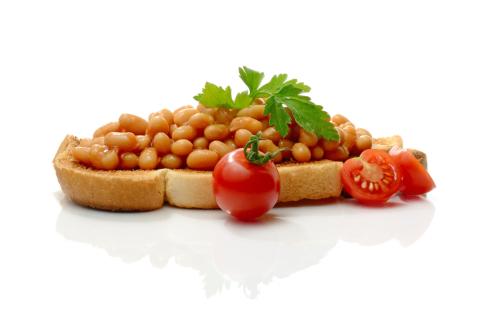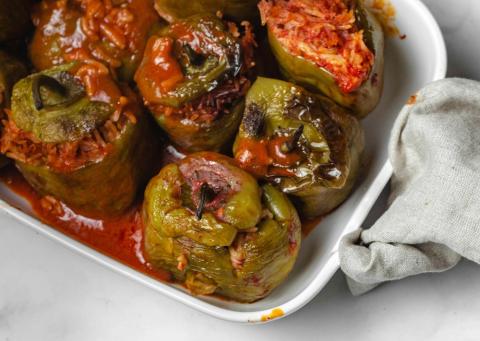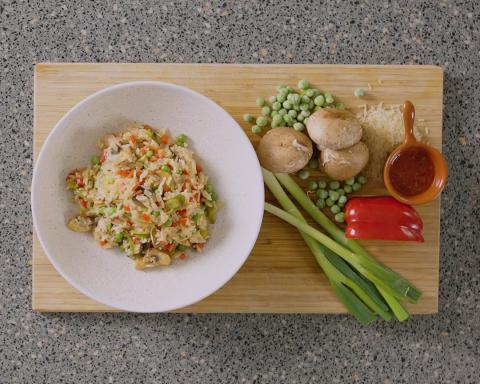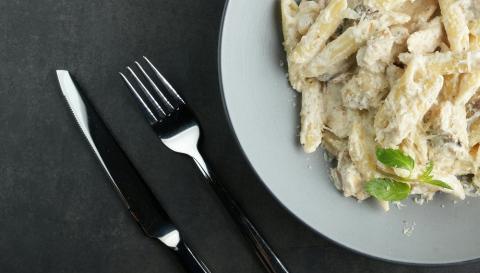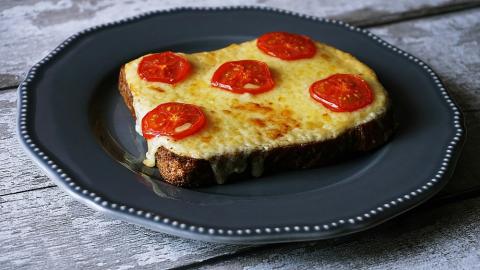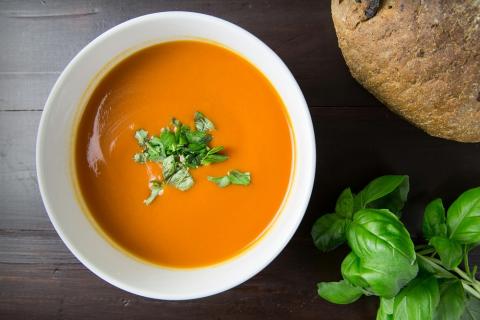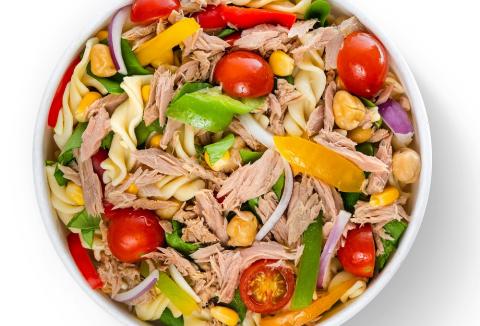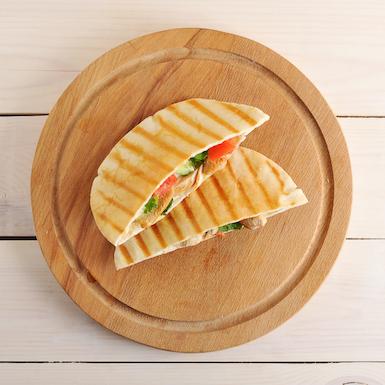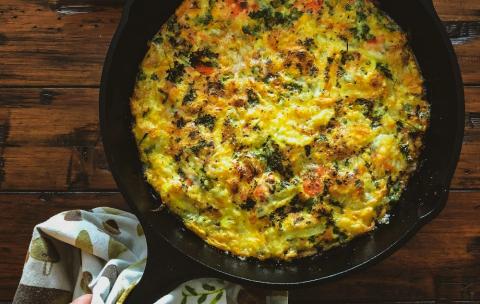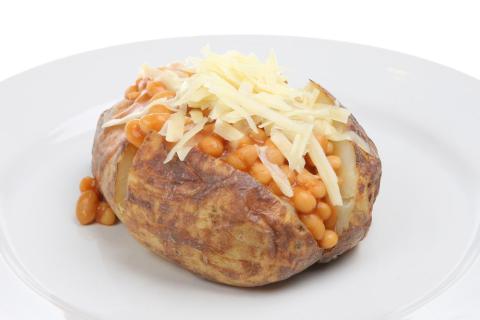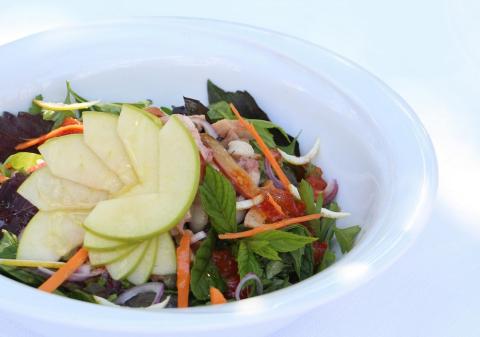- 5 Heaped spoonfuls Tablespoons (200g) Brown Rice
- 2 Tablespoons (20g) Vegetable Oil
- 1 Large sized (240g) Onion
- 2 Sticks (60g) Celery
- 2 (6g) Garlic Cloves
- 8 Medium sized (80g) Mushrooms
- 1 Medium sized (100g) Courgette
- 1 Teaspoon (1g) Mixed Herbs
- 4 (600g) Beef Tomatoes
- 4 (640g) Peppers
- 1 Pinch (1g) Ground Black Pepper
- 4 Low fat Tablespoons (40g) Cheddar Cheese
Ingredients
Allergy Disclaimer
Always check the label of each ingredient for allergy warnings.
Method
- Preheat the oven to 190°C / 170°C fan oven / 360°F / gas mark 5
- Gently boil the rice as per manufacturers instructions. Meanwhile peel the onion and garlic then slice along with the celery, mushrooms and courgette into small cubes
- Heat the oil in a large non-stick frying pan and cook the onion, celery, garlic, mushrooms and courgette for 8-10 minutes, until soft. Set aside
- Drain the rice and mix with the cooked vegetables and herbs. Season with black pepper
- Slice the tops from the peppers and tomatoes, scoop out the seeds and arrange them in a roasting tin
- Fill with the rice mixture and sprinkle with grated cheese, put the tops back on and bake for approximately 20 minutes, until the vegetables are tender
Tips for Kids
Kids will love to help to prepare the toamtoes and peppers. Let them choose their favourite colour pepper.
Nutritional Information
Based on a single serving of 456g (% of an adult's reference intake)
Energy
287 kcals ( 14 %)
1,117 kJ ( 14 %)
Fat
2.3 g ( 12 %)
Saturates
43.8 g ( %)
Sugar
15.5 g ( 17 %)
Salt
0.2 g ( 3 %)
Detailed nutritional information
| Per 100g | Per 456g serving | |
|---|---|---|
| Energy Kcals | 63 | 287 |
| Energy Kj | 245 | 1,117 |
| Protein | 2.1 g | 9.6 g |
| Total Fat | g | g |
| Saturated Fat | 0.5 g | 2.3 g |
| Carbohydrates | 9.6 g | 43.8 g |
| Total Sugars | 3.4 g | 15.5 g |
| NSP Fibre | 1.3 g | 5.9 g |
| Sodium | 22 mg | 100 mg |
| Salt | 0.1 g | 0.2 g |
Find out about nutritional labelling
Nutrition labels on the front of packaging
- Most of the big supermarkets and many food manufacturers display nutritional information on the front of pre-packed food.
- Front of pack nutrition labels provide information on the number of grams of fat, saturated fat, sugars and salt and the amount of energy (in kJ and kcal) in a serving or portion of a recipe.
- The labels also include information about reference intakes (expressed as a percentage) which are guidelines about the approximate amount of particular nutrients and energy required for a healthy diet.
- The colour coding tells you at a glance if the food has high (red), medium (amber) or low (green) amounts of fat, saturated fat, sugars and salt.
- The more greens on the label, the healthier the choice
- Amber means neither high nor low, so you can eat foods with all or mostly ambers on the label most of the time.
- Reds on the label means the food is high in that nutrient and these are the foods we should cut down on. Try to eat these foods less often and in small amounts.
Food shopping tips
If you’re trying to decide which product to choose, check to see if there's a nutrition label on the front of the pack. This will help you to quickly assess how your choices stack up. You will often find a mixture of red, amber and green colour coding for the nutrients. So when you're choosing between similar products, try to go for more greens and ambers and fewer reds if you want to make a healthier choice.
 Activities & Play
Activities & Play Behaviour
Behaviour Childcare
Childcare Development & Growing Up
Development & Growing Up Family, Friends & Relationships
Family, Friends & Relationships Feeding Your Baby
Feeding Your Baby Food & Eating
Food & Eating Health & Safety
Health & Safety Mental Health & Wellbeing
Mental Health & Wellbeing Money & Work
Money & Work Online Behaviour & Safety
Online Behaviour & Safety Pregnancy & First Days
Pregnancy & First Days School & Education
School & Education Sleep
Sleep

